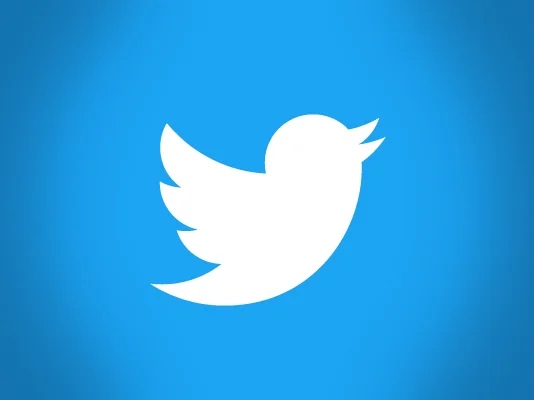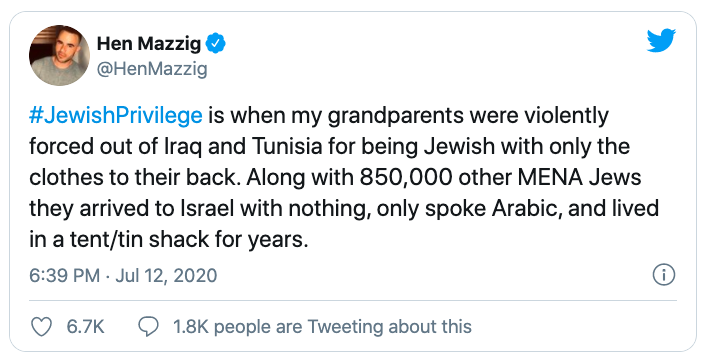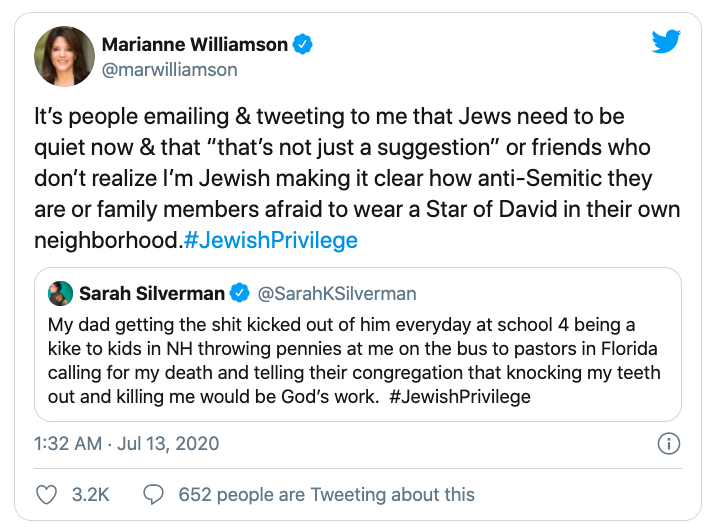
We’re Curious…
The Twitter hashtag “#JewishPrivilege” has been used by antisemites and conspiracy theorists for years. So why has it been trending recently among celebrities and activists in order to share stories of discrimination faced by Jews in history and today?
It All Began With: DeSean Jackson’s Instagram Story
Two weeks ago, Philadelphia Eagles wide receiver DeSean Jackson shared antisemitic quotes incorrectly attributed to Adolf Hitler on his Instagram story and praised Nation of Islam leader Louis Farrakhan in a subsequent post. Known for his antisemitic rhetoric, Farrakhan has compared Jews to “termites,” referred to Hitler as “a very great man,” and, in a three-hour speech given just this July 4th, described Jews as “Satan” and the “enemy of God.” In his initial apology, Jackson said, “Anyone who feels I have hate towards the Jewish community took my post the wrong way. I have no hate in my heart.” But then, in a second apology that seemed much less convincing, Jackson made the case that his “intention was to uplift, unite, and encourage our culture with positivity and light.” The Eagles have penalized and fined Jackson “for conduct detrimental to the team,” while the NFL called his comments “highly inappropriate, offensive and divisive.” Promising to “educate himself,” Jackson recently met with Edward Mosberg, a 94-year-old Holocaust survivor, and is reportedly planning to visit Auschwitz.
Adding to the controversy, Stephen Jackson, a former NBA player and co-host of the popular “In the Smoke” podcast, said that DeSean Jackson (who had already apologized) was “speaking the truth,” and made antisemitic statements of his own. Stephen Jackson, who reportedly attended Farrakhan’s July 4th speech, had been an inspiring spokesperson against racism during the George Floyd protests as a personal friend of Floyd. He later apologized “for using the wrong words” in a contentious interview with CNN’s Don Lemon. Meanwhile, actor and entertainer Nick Cannon tweeted an apology to the Jewish community for his “hurtful and divisive words” in a podcast, after being fired by ViacomCBS for “hateful speech” and spewing “antisemitic conspiracy theories.” Cannon said on his Twitter account that his words “reinforced the worst stereotypes of a proud and magnificent people, and I feel ashamed of the uninformed and naive place that these words came from.” In the infamous podcast, Cannon endorsed the claim that “the Rothschilds…control everything outside of America,” said Black people are the “true Hebrews” and that Jews have usurped that identity, and praised Farrakhan.
The Story Continued With… Zach Banner, Julian Edelman, Kareem Abdul Jabbar and Charles Barkley
A few professional athletes stood out in condemning DeSean Jackson’s Instagram posts. In a video posted to Twitter, Zach Banner of the Pittsburgh Steelers got choked up as he recalled the 2018 shooting at the Tree of Life synagogue in his city, and said he wanted the Black community to know that “Jewish people deal with the same amount of hate and similar hardships and hard times.” He argued that, “When we talk about Black Lives Matter and elevating ourselves, we can’t do that while stepping on the back of other people.” Similarly, Patriots wide receiver Julian Edelman, who is Jewish, stressed in an Instagram video that “the Black and Jewish communities have a lot of similarities.” Arguing that “we need to have those uncomfortable conversations if we’re going to have real change,” he offered to visit the Holocaust Museum in D.C. and the National Museum of African American History and Culture with Jackson, followed by sharing a meal.
Other athletes and influencers condemned the antisemitic posts and also expressed frustration about an overall lack of response from others. In an op-ed titled, “Where Is the Outrage Over Anti-Semitism in Sports and Hollywood?”, NBA Hall of Famer Kareem Abdul Jabbar noted “the shocking lack of massive indignation” over the antisemitic tweets and posts. Invoking Dr. Martin Luther King, Jr., he wrote: “The lesson never changes, so why is it so hard for some people to learn: No one is free until everyone is free. If we’re going to be outraged by injustice, let’s be outraged by injustice against anyone.”
ESPN television host Sage Steele agreed. In a video she posted to Instagram alongside the text “Silence is compliance,” she noted the statements from the NFL and the Steelers condemning DeSean Jackson’s posts, concluding that “otherwise, the silence from NFL players has been deafening.” Mitch Albom had the same impression, writing in USA Today that “despite Jackson repeating the worst form of Jewish stereotyping… only a handful of athletes (several of them Jewish) and some notable media voices criticized him.” Former Philadelphia 76ers star Charles Barkley added his voice to the conversation. Addressing DeSean Jackson, Stephen Jackson, Nick Cannon, and Ice Cube in a video tweeted by NBA on TNT, he said, “I don’t understand how insulting another group helps our cause. And the only person who called you all on it was Kareem… I don’t understand how you beat hatred with more hatred.”
Farrakhan and the False Khazarian Hypothesis
In the podcast that got him fired, Nick Cannon referred to Black people as “the true Hebrews,” and, defending himself against accusations that he is antisemitic, said, “You can’t be antisemitic when we are the Semitic people, when we are the same people that who they want to be, that’s our birthright.” According to Ari Feldman, these comments reflect “an increasingly visible theology among Black cultural figures: That Black people are the true descendants of the ancient Israelites — not white Jews.” He argued that the recent antisemitic posts are “tied together by the notion that present-day Jews — especially Ashkenazi Jews with white skin — are not real Jews. In this worldview, that distinction belongs exclusively to Black people.”
Feldman identifies Farrakhan as the representative of this worldview, which denies the Jews’ connection to ancient Israel as well as to Judaism. Indeed, in a supposed message to the Jewish community, Farrakhan has said, “You came out of Khazar. You were the one that became a convert to Judaism, and look at your behavior since you have taken land from the Palestinians.” This statement is an example of what some refer to as “The Khazarian Hypothesis,” a conspiracy theory dating back to the late 1800s about the origin of Ashkenazi Jews. According to the theory, which has been thoroughly debunked by scientific, historical, linguistic and other evidence, Ashkenazi Jews are descendents of the Khazars, a Turkic-speaking people who established a powerful state in the 600s CE in Southeast Russia, and who are thought to have converted to Judaism at the instruction of their ruler. Proponents of the theory hold that the Jews did not migrate from Jerusalem and Babylonia into Western Europe, but rather, came from what is now Russia and Ukraine.
In addition to Farrakhan, this argument has been used by Palestinian Authority President Mahmoud Abbas as recently as 2018 to delegitimize Jewish claims on the Land of Israel. It is also used by antisemites in general who claim that Ashkenazi Jews are “fake Jews” and that the Jewish people and Israel are a “fake nation.” Finally, it is important to note that this theory completely discounts the non-Ashkenazi (including Sephardic, Mizrahi and Ethiopian) Jews who make up the majority of Jews in Israel.
The Conversation is About: Understanding Today’s Antisemitism
The controversy over DeSean Jackson’s (and others’) posts come as antisemitism in the United States has risen significantly in recent years. The Anti-Defamation League (ADL) tracks the number of these incidents each year. Between 2016 and 2017, that number jumped 57 percent; this represented the largest annual increase the organization has ever recorded since it began tracking in 1979. In 2017, hundreds of far-right extremists gathered for the infamous “Unite the Right” rally in Charlottesville, Virginia. The shooting at the Tree of Life synagogue in Pittsburgh, which killed 11 people, occurred in 2018, and the year 2019 saw three major attacks on the American Jewish community: the shooting at the Chabad of Poway, California; an attack on a Jewish grocery store in Jersey City, New Jersey; and a stabbing at a Hanukkah party at the home of a rabbi in Monsey, New York. Last week, former NYPD Commissioner Raymond Kelly warned American Jews that “we are at a dangerous place in history” and recommended security measures for synagogues that follow the example of communities in Europe.
The recent anti-Jewish social media posts have led to more conversation about the nature of today’s antisemitism and what underlying factors motivated these incidents. Seth Frantzman wonders whether “Farrakhanism” has become mainstream in the U.S. He argues that “this form of American antisemitism…attacks Jews for being white – Rothschilds – who allegedly are responsible for US slavery and white supremacism.” Responding to this type of argument, Rabbi Mike Rothbaum asked the Jewish community to “stop talking about Black antisemitism,” noting that “When White folks act out their anti-Semitism, it’s called ‘anti-Semitism.’ But when Black folks share anti-Semitic words or ideas, it’s categorized under the specialized umbrella of ‘Black anti-Semitism.’” He argued that there is a double standard for Black people when it comes to being forgiven by the public for making antisemitic remarks, and urged the Jewish community to “have an honest conversation about White anti-Semitism.”
Meanwhile, Emily Schrader believes that the modern manifestation of antisemitism is anti-Zionism. She argues that anti-Zionism is the “one reason” why individuals like Farrakhan and activist Linda Sarsour have been able to make antisemitic statements and come away relatively “unscathed by public outrage, in comparison to the smallest incidents of hate speech against other minority groups.” Finally, in a piece for CNN, Ethan Katz and Dr. Deborah Lipstadt focused on the similarities between antisemitism and anti-Black racism, noting that both “lie at the core of White supremacist ideology.” They argued that “beyond their common enemies, Blacks and Jews have vital commonalities in their history” and called for advancing mutual understanding and solidarity between the two communities.
How to Flip a Twitter Attack About #JewishPrivilege
Meanwhile, last week, far-right antisemitic accounts ignited a Twitterstorm when they began using the hashtag “#JewishPrivilege,” causing the term to trend on the site. Israeli writer and activist Hen Mazzig, who inspired Jews to launch a counter-campaign, reported that these white supremacist posts “spread antisemitic conspiracies about Jews being ‘privileged’ — that [they] control the media, the banks and the world.” Progressive users soon joined the same conversation but promoted a different idea — “that Jews don’t face any discrimination” and at the same time, “are responsible for the discrimination and other ills many minorities face.”
Mazzig wanted to fight back. He tweeted, “#JewishPrivilege is when my grandparents were violently forced out of Iraq and Tunisia for being Jewish with only the clothes to their back. Along with 850,000 other MENA Jews they arrived to Israel with nothing, only spoke Arabic, and lived in a tent/tin shack for years.”


Mazzig’s post was retweeted over a thousand times in a matter of hours. Jewish celebrities including Sarah Silverman, David Baddiel, Josh Gad, Marianne Williamson and David Simon began sharing their own experiences of antisemitism using “#JewishPrivilege.” The hashtag continued trending, only this time it was because of the stories of antisemitism (both over the centuries and much more recently) that were pouring in. Reflecting on the successful campaign he helped launch to counter hate speech on Twitter, Mazzig wrote, “Since we cannot depend on Facebook, Twitter, Instagram and now TikTok to protect us, we need to take action ourselves. By ‘flipping’ a social media attack, any minority group can take a bigoted online trend and turn it into an educational moment that provides resources for those who know little about the respective minority group.”
The Bottom Line
Hate speech may still be rampant on various social media platforms, but working together, the Jewish community on Twitter successfully flipped an antisemitic hashtag and fought back, hopefully educating others in the process.
Originally Published Jul 20, 2020 10:41AM EDT
